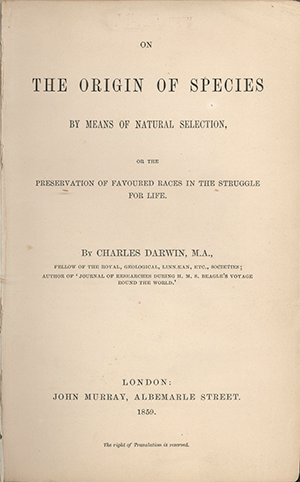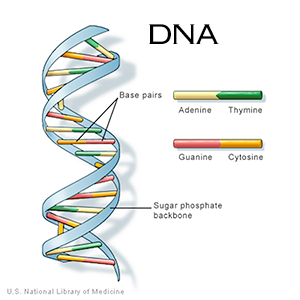Re-evaluating Darwinism: Contemporary Challenges in Evolutionary Theory
Darwinian evolution, grounded in natural selection acting on random variation, remains a cornerstone of modern biology. However, in recent decades, a growing number of scientists have raised questions about the theory’s scope, sufficiency, and explanatory power. These critiques are not necessarily rejections of evolution per se, but rather calls for a more comprehensive framework that better accounts for empirical anomalies, complex biological systems, and emerging discoveries in genetics, developmental biology, and systems theory.
Since its publication in 1859, Charles Darwin’s On the Origin of Species has profoundly shaped biological science. The central mechanism Darwin proposed—natural selection acting on random heritable variation—provided a unifying explanation for the diversity of life and has been further developed through the 20th-century "Modern Synthesis," which integrated Mendelian genetics with population biology. Despite this success, Darwinism in its classical and neo-Darwinian forms has faced increasing scrutiny in light of empirical and conceptual developments. These critiques come not only from religious or philosophical perspectives but from within the scientific community itself.
Gaps in the Fossil Record and the Tempo of Evolution
One of the earliest and most persistent problems in Darwinian theory is the incompleteness of the fossil record. Darwin predicted that intermediate forms would eventually be discovered in abundance, yet many transitions remain undocumented or ambiguous. The most notable example is the Cambrian explosion, where a wide array of complex body plans appear in a geologically brief period without clear precursors.
To address this, Gould and Eldredge's theory of punctuated equilibrium proposed that species often experience long periods of morphological stasis interrupted by brief episodes of rapid change. While this model addresses some discrepancies, it also introduces questions about the mechanisms that might drive such punctuations, which are not fully accounted for by standard Darwinian processes.
Origin of Life and the Limits of Darwinian Mechanisms
Darwinian theory is not a theory of life’s origin, yet the origin of the first self-replicating molecules remains a critical foundational question. Abiogenesis research has not yet yielded a robust or universally accepted model explaining the transition from chemistry to biology. The formation of functional proteins, metabolic pathways, and informational molecules such as RNA and DNA poses enormous probabilistic challenges, particularly without the guiding hand of natural selection prior to replication.
Efforts to simulate prebiotic chemistry (e.g., the Miller-Urey experiments) have had limited success in producing biologically relevant complexity. This gap continues to generate significant debate over whether current naturalistic models are adequate or whether new paradigms are required. ( See Video). In fact, while the above-mentioned Miller-Urey experiment continues to appear in science textbooks as though it produced the successful demonstration of "pre-biotic" chemistry, it is now known that the gasses used in the experiment are not those that existed in the early earth, and that the assembly of individual amino acids into even simple proteins is completely beyond our ability to recreate.
Genetic Information and Novelty
A major challenge for neo-Darwinism is explaining the origin of novel genetic information. While mutation and selection can account for variation within species (microevolution), it remains controversial whether they can fully explain the emergence of entirely new biological structures or systems (macroevolution). Critics point to the rarity of beneficial mutations, the degradation of information over time, and the inability of stepwise selection to generate complex systems with interdependent parts.
Mechanisms such as gene duplication, horizontal gene transfer, and epigenetic regulation have been proposed to account for evolutionary innovation. While promising, these mechanisms are still being evaluated, and their sufficiency for explaining large-scale evolutionary transitions remains debated.
Mathematical and Theoretical Concerns
Population genetics, the mathematical backbone of modern evolutionary theory, has itself raised difficulties. Notably, J.B.S. Haldane's Dilemma questioned how many mutations could realistically become fixed in a population over evolutionary timescales without incurring unsustainable genetic costs. Additionally, critics have highlighted the limitations of models that assume infinite populations, constant selection coefficients, and simple trait inheritance—assumptions that do not always reflect biological reality.
Modern understanding of difficuly inherent in producing complex molecules via random processes has also thrown great doubt upon the idea that billions of years provide sufficient time for such processes to generate life and its complexities.
( See Video)
Developmental Biology and Evo-Devo
The emergence of evolutionary developmental biology (evo-devo) has opened new avenues of research that challenge traditional Darwinian assumptions. Evo-devo emphasizes the role of developmental constraints, modularity, and regulatory genes in shaping evolutionary outcomes. These insights suggest that developmental pathways play a central role in channeling evolution, potentially limiting the random walk assumed by classical Darwinism.
Furthermore, phenomena such as epigenetic inheritance and non-genetic cellular memory imply that inheritance is more complex than DNA sequence alone, complicating the gene-centric view of evolution.
Irreducible Complexity and Systems Biology
A major philosophical and biological challenge is posed by biological systems exhibiting apparent irreducible complexity — that is, systems which require all components to function and confer advantage. Critics, especially from the Intelligent Design movement, argue that such systems could not arise through gradual, stepwise modifications because intermediate stages would be non-functional.
While many evolutionary biologists have proposed co-option and exaptation as possible pathways, these explanations remain theoretically plausible but often empirically underexplored. Systems biology, a growing interdisciplinary field, attempts to model biological complexity as emergent from networks and interactions, though it is not yet fully integrated with evolutionary theory.
Philosophical and Methodological Questions
Darwinian theory is often equated with methodological naturalism, the assumption that only natural causes are admissible in scientific explanation. However, critics argue that this stance sometimes leads to theoretical rigidity, where untestable auxiliary hypotheses are used to preserve the theory rather than to challenge or revise it. There is a need for philosophical openness in evolutionary science to consider alternative explanatory frameworks when empirical anomalies persist.
Moreover, the reductionist tendency of Darwinism — explaining all biological and even psychological phenomena in terms of survival and reproduction — has been questioned by philosophers, neuroscientists, and theologians. Complex phenomena such as consciousness, morality, and intentionality remain poorly explained by purely Darwinian means.
Emerging Scientific Dissent
Importantly, a number of scientists have begun to call for a "post-Darwinian synthesis" that incorporates systems biology, information theory, developmental constraints, and self-organization into a new evolutionary framework. Movements such as the Third Way of Evolution explicitly criticize the sufficiency of neo-Darwinian theory and propose research agendas beyond mutation and selection.
These are not fringe efforts, but involve molecular biologists, geneticists, and theorists working within mainstream institutions. Their common goal is not to discard evolution, but to expand its theoretical foundations.
Darwinism has been remarkably successful in explaining much of the biological diversity observed in nature. However, significant scientific, mathematical, and philosophical challenges remain unresolved. These challenges should not be dismissed as anti-scientific or ideologically motivated. Rather, they represent a vital and ongoing process of theoretical refinement and empirical testing that is essential to scientific progress.
A truly scientific approach to evolution must remain open to critical examination, alternative hypotheses, and interdisciplinary insights, rather than resting on consensus or historical authority. In this spirit, the future of evolutionary theory may lie not in defending Darwinism as it was formulated in the 19th century, but in extending and revising it in light of new data and conceptual advances.

